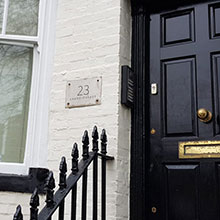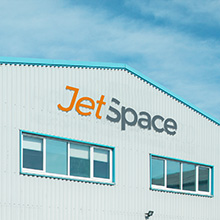
The Decentralisation Revolution: Why Companies are Opting for Multiple Offices
One of the many new trends sweeping across the business world in the post-pandemic era is that of workplace decentralisation – the move towards having multiple, smaller offices in various locations instead of one central hub, or HQ. This shift is shaking up the traditional office model, and it’s worth digging into the reasons for its popularity and whether decentralisation is here to stay longer term.
The Decentralisation Trend
The concept of decentralisation isn’t new, but it’s gaining momentum in the corporate world for a number of reasons. Companies of all sizes, from start-ups to multinational corporations, are embracing the advantages of spreading staff across smaller offices. But why? Well, there are several compelling reasons.
Benefits to Businesses
Flexibility and Resilience: Having multiple offices allows businesses to be more flexible and resilient. If one location faces a crisis, operations can continue in other offices. Technical failures, power outages, transport issues (from road closures to rail strikes) and even localised quarantine regulations can put an office out of action. But with secondary and tertiary locations business can continue unhindered. This resilience has been particularly valuable off the back of the challenging conditions created by the Covid-19 pandemic.
Access to Talent: Decentralisation enables companies to tap into talent pools in different regions. No longer confined to one location, businesses can hire the best, no matter where they are. This is particularly important in an era where employees are less inclined to commute long distances for work. Why give up hours of your day/week getting to a place of work when so many roles can be performed remotely?
Local Market Insights: With offices in various locations, companies can gain a deeper understanding of local markets. This can lead to more effective marketing strategies and improved customer service. Not to mention the fact that you might be more likely to win new business in that locale if you’ve got a team and a premises there tfrom which to service your clients and customers.

Benefits to Employees
Reduced Commute Times: As mentioned above, this is a benefit to the business just as much as it is to its staff. Employees can choose to work in the office closest to them, reducing commute times and improving that all important work-life balance.
Flexible Working Options: With multiple locations, companies can offer more flexible working arrangements. Employees can choose to work from the office that suits them best, on the days that suit them best, depending on their needs and preferences. This means that working away doesn’t have to mean working from a cramped hotel room. There might just be an office for that.
Increased Job Opportunities: Decentralisation can lead to more job opportunities in different regions, contributing to local economies. This allows staff to take advantage of increased competition and demand for their skills. Gone are the days when all the top talent headed to London each day for the biggest salaries with the top companies and this has helped spread the talent across the country.

The Impact on Different Sized Businesses
Small Businesses: For small businesses, having multiple offices can help establish a presence in different markets. It can also make it easier to attract talent and provide a more personalised service to customers. Though it may seem more costly to operate multiple offices than base everyone in one centralised HQ, the ability to utilise smaller, flexible spaces, often in less expensive locations, can be a far more cost effective solution.
Medium-Sized Businesses: Medium-sized businesses can benefit from decentralisation by being closer to their customers. It can also help with competing with larger companies by having that presence in multiple locations. Many businesses and individuals alike prefer doing business with companies based locally so offices covering multiple locations can potentially win a lot more business from that region.
Large Corporations: For large corporations, decentralisation can lead to significant cost savings. It can also help businesses stay agile and responsive, in spite of their size. A giant multi level central London office building could end up being more expansive than six separate smaller offices spread across Bristol, Brighton, Norwich, Leeds, Newcastle and Manchester, for example.
Decentralisation Into the Future
The trend towards decentralisation is reshaping the business landscape. It offers numerous benefits to both businesses and employees, making it an attractive option for companies of all sizes, across multiple different sectors. As we move forward, it will be interesting to see how this trend evolves and what impact it will have on the future of work in an era seeing rapid change.
Co-working hubs and serviced office buildings are ideal for the modern agile business looking to decentralise, allowing for less commitment and greater flexibility than a traditional leased office. If your business is considering decentralising to take advantage of better workspaces in more convenient locations, get in touch with us to learn about JetSpace’s Brighton serviced office options.
Call on 01273 917977 or complete our enquiry form
enquire book a viewing

